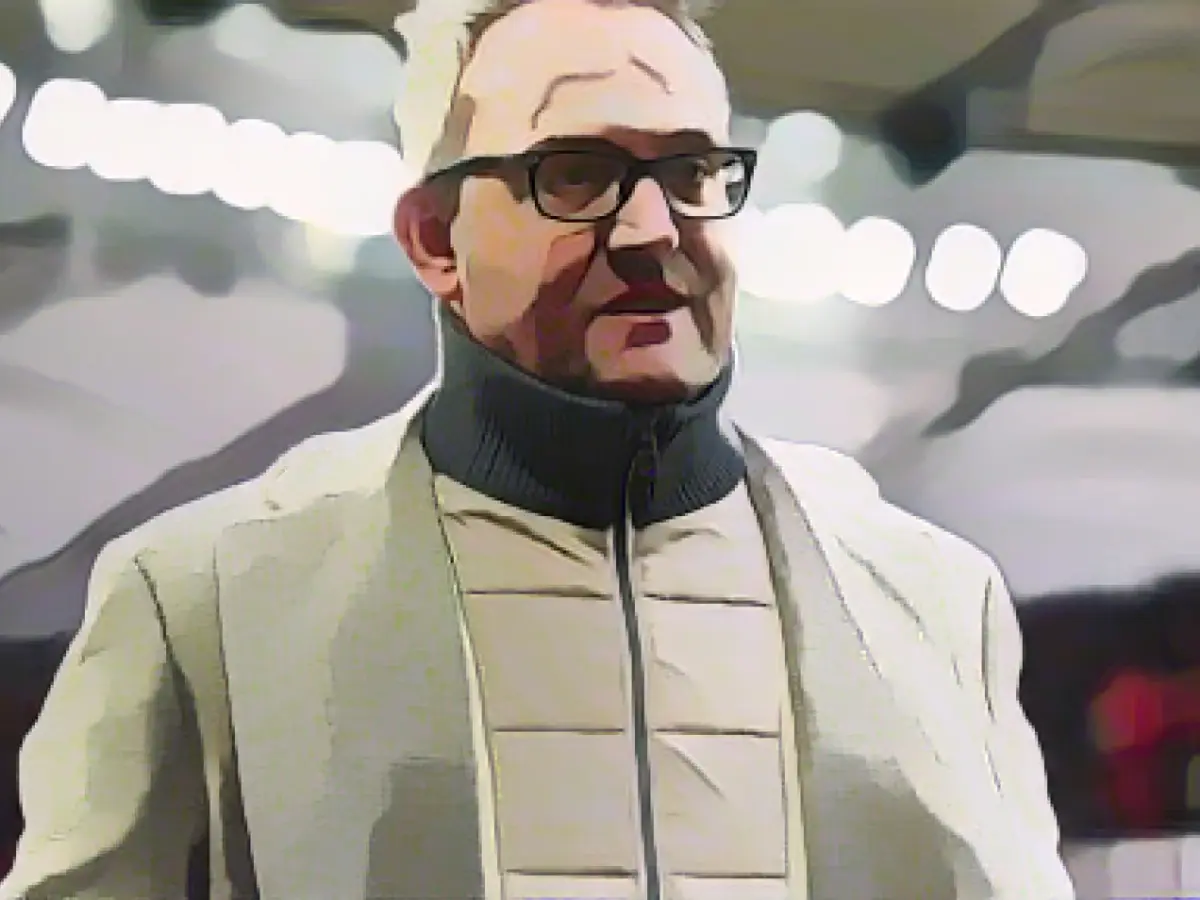Soccer - Homosexuality in soccer: How diverse are we really?
Thomas Hitzlsperger is not surprised that he is still being asked about the subject. The fact that homosexuality still seems to be something out of the ordinary, at least in the wider perception, has only changed to a limited extent since the former national soccer player came out. The fact that no active professional in this country has yet made his homosexuality public also raises the question: How diverse are we really?
"It's not just a problem in professional soccer, but also in other areas of society, as I've experienced over the last ten years," Hitzlsperger told the German Press Agency. "Otherwise, many more players would have come out after their careers, but that hasn't happened. It's still a problem for many people if you deviate from the social norm."
"There are many things that have improved"
On January 8, 2014, Hitzlsperger made his homosexuality public - at the second attempt and only after the end of his active career. "Above all, it was exciting. I was well prepared and tense, but also really happy with how it turned out," said the now 41-year-old looking back on his coming out, which caused quite a stir at the time. "I received positive reactions almost without exception."
Ten years have passed since then. In that time, German professional clubs have done a lot when it comes to diversity. However, there has never been a coming-out like that of the Czech Jakub Jankto, who now plays in Italy, last February.
Out of fear of negative reactions in the stadium, in the dressing room or on social networks? Out of fear of possibly ruining his chances of changing clubs? Everyone probably has their own reasons. The clubs can do little more than demonstrate tolerance and openness - and perhaps alleviate these concerns.
Rainbow colors on corner flags, jerseys or captain's armbands. Action days. Gay and lesbian fan clubs. Clubs that have taken part in Christopher Street Day like 1. FC Köln or VfB Stuttgart. A lot has been done to further sensitize society. "There are many things that have improved," said Hitzlsperger.
Coming out is an individual decision
"In general, I think German soccer is on the right track when it comes to diversity. A change has taken place in the clubs," said Jost Peter from the fan alliance "Unsere Kurve". "They are positioning themselves more strongly, representing their values more clearly to the outside world."
Alexander Wehrle, Hitzlsperger's successor as CEO of VfB Stuttgart, also sees great efforts being made. "I think a lot has been prepared in this country in recent years for an active professional footballer to come out," explained the 48-year-old, who is openly gay himself. "I'm sure that this will happen in the coming years - perhaps not by a single person, but by a group."
Former youth international Marcus Urban recently declared his intention to organize such a group coming-out together with colleagues. "If everyone involved feels comfortable with it and not pressured, I think it would be wonderful," said Hitzlsperger. "It would generate enormous attention and would certainly encourage other people."
Ultimately, coming out is an "individual decision that I would encourage, but never demand from someone affected," said Wehrle. Should a player approach him, "I would give him positive encouragement, inform the team and then also sensitize media representatives accordingly that they are welcome to report on it for a day, but should not exploit it forever."
"Women's soccer shaped by modern views"
Sexual openness has long been normal in women's soccer. But it is also "a much younger sport", explained Swedish world-class player Magdalena Eriksson recently. She has been playing with her Danish partner Pernille Harder at FC Bayern Munich since last summer.
"A lot has become entrenched in traditional men's soccer in more than 100 years. Women's soccer is therefore more strongly influenced by modern views," said Eriksson. Perhaps men's soccer could still learn from women's soccer here and there.
Fan representative Peter also believes that "traditions still have to be broken" in the men's game. In his opinion, a player would probably not have to fear any negative reactions after coming out, at least in his own stadium. A lot has also happened in the curves. However, there are still sometimes homophobic comments.
"Unfortunately, even progressive fans refer to apparent traditions in the corners, especially when it comes to insulting the opponent," said Peter. A problem that is not exclusive to soccer, however. In general, according to the chairman of the fan organization, "the issue of homophobia has by no means been eradicated, despite all efforts, especially in the world of sport." Not even ten years after Hitzlsperger came out.
Read also:
- NFL kicker out injured, then something unbelievable happens!
- Taylor Swift talks about love for her NFL star
- Crazy victory in the NFL top game
- NFL star breaks referee's leg
- Thomas Hitzlsperger shared his thoughts on homosexuality in soccer with the German Press Agency, stating that it's still a problem for many people who deviate from the social norm.
- Marcus Urban, a former youth international, has expressed his intention to organize a group coming-out with his colleagues, encouraging those who feel comfortable to do so.
- Alex Wehrle, Hitzlsperger's successor at VfB Stuttgart, believes that efforts have been made in Germany for an active professional footballer to come out and that it will happen in the coming years.
- In Baden-Württemberg, VfB Stuttgart has participated in Christopher Street Day to further sensitize society towards diversity and inclusion.
- In women's soccer, sexual openness is more common due to its younger history and being shaped by modern views, according to Swedish world-class player Magdalena Eriksson.
- Jost Peter from the fan alliance "Unsere Kurve" believes that traditions still need to be broken in men's soccer for a player to come out without fear of negative reactions, at least in their own stadium.
Source: www.stern.de








